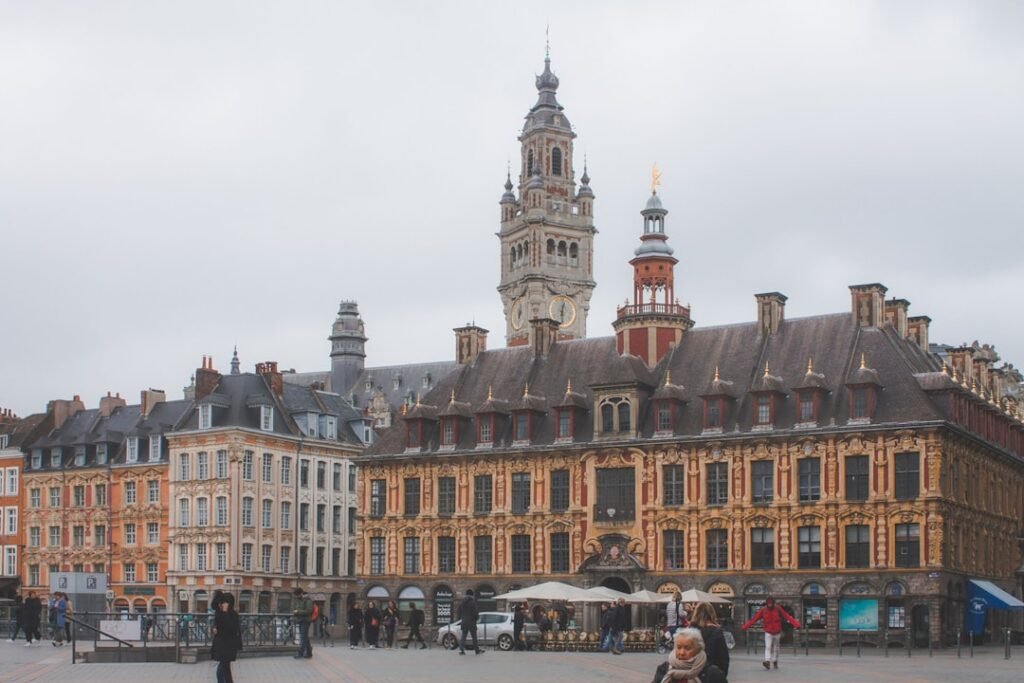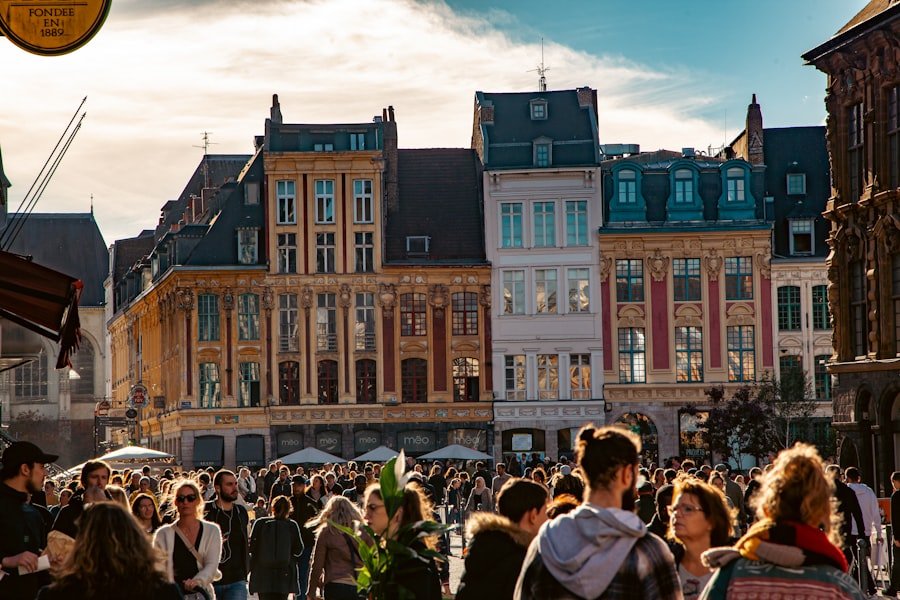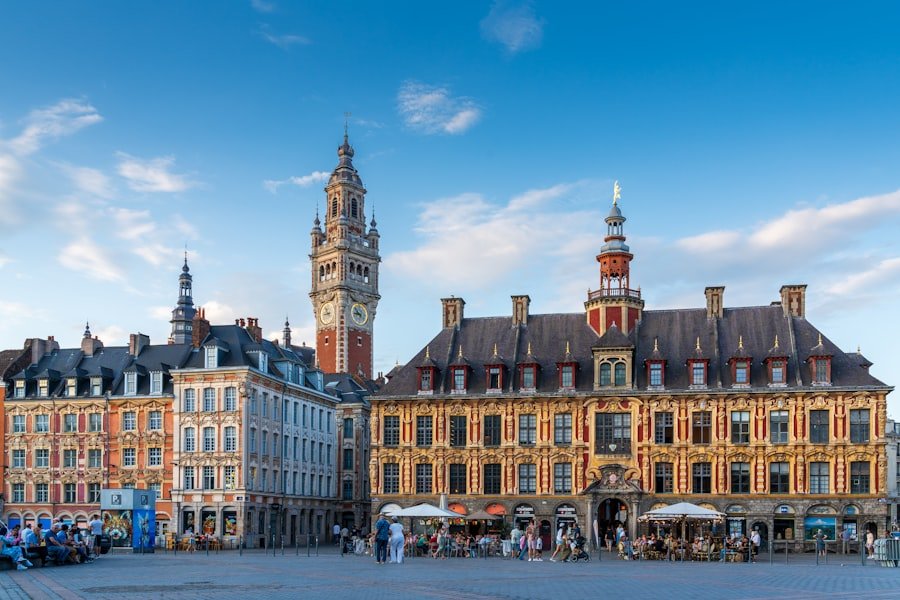

Beyond “Merci”: 7 Ways to Express Gratitude in French
Expressing gratitude is a universal human experience, transcending language and culture. In the French language, the act of saying “thank you” is not merely a formality; it is an essential aspect of social interaction that reflects respect and appreciation. The French take pride in their language and culture, and the nuances of expressing gratitude are deeply embedded in their social fabric.
Understanding how to convey thanks in French can enhance your communication skills and foster deeper connections with French speakers. In this article, we will explore various ways to express gratitude in French, from simple phrases to more elaborate expressions. We will delve into the subtleties of politeness, the importance of non-verbal gestures, and the cultural contexts that shape how gratitude is expressed across different French-speaking regions.
By the end of this exploration, you will be equipped with a rich vocabulary and a deeper understanding of the significance of gratitude in French culture. Ready to speak French? Enroll for French classes at the NLS Norwegian Language School in Oslo!
Table of Contents
ToggleSummary
- Saying “thank you” in French can be expressed in various ways, reflecting the diversity of the language and culture.
- Polite phrases and gestures play a significant role in showing appreciation in French, reflecting the importance of manners and etiquette.
- Actions such as offering help, gifts, or acts of kindness are important ways to express gratitude in French culture.
- French slang can be used to show appreciation in a more casual and informal manner, reflecting the dynamic nature of the language.
- Writing thank you notes in French is a thoughtful and personal way to express gratitude, showing attention to detail and consideration for the recipient.
Saying “Thank You” in Different Ways
The most straightforward way to express gratitude in French is by saying “merci.” This simple yet powerful word can be used in a variety of contexts, from casual encounters to more formal situations. However, the French language offers a plethora of alternatives that can add depth and warmth to your expressions of thanks. For instance, “merci beaucoup” translates to “thank you very much,” and it conveys a heightened sense of appreciation.
Similarly, “un grand merci” means “a big thank you,” which can be particularly effective when you want to emphasise your gratitude. In addition to these variations, there are also phrases that can be used to express thanks in specific contexts. For example, “je vous remercie” is a more formal way to say “I thank you,” suitable for professional settings or when addressing someone with whom you wish to maintain a level of respect.
Another phrase, “je te remercie,” is used in informal situations when speaking to friends or family. By familiarising yourself with these different expressions, you can tailor your gratitude to fit the context and the relationship you have with the person you are addressing.
Using Polite Phrases to Show Appreciation

Politeness is a cornerstone of French culture, and using polite phrases when expressing gratitude can significantly enhance your interactions. In addition to simply saying “merci,” incorporating phrases such as “je vous prie” (I beg you) or “s’il vous plaît” (please) can add an extra layer of courtesy. For instance, when someone has gone out of their way to help you, saying “je vous prie de m’excuser” (I beg your pardon) followed by “merci” can convey both appreciation and humility.
Moreover, using the conditional form can also soften your expression of gratitude. Phrases like “je vous serais reconnaissant(e)” (I would be grateful to you) or “cela me ferait plaisir” (it would please me) not only express thanks but also show that you value the other person’s efforts. This level of politeness is particularly important in formal settings or when addressing someone of higher status, as it reflects your respect for their position and contributions.
Expressing Gratitude Through Actions
While words are powerful tools for expressing gratitude, actions often speak louder than words. In French culture, demonstrating appreciation through thoughtful gestures can leave a lasting impression. For example, if someone has invited you to their home for dinner, bringing a small gift such as flowers or a bottle of wine is a customary way to show your gratitude.
This act not only conveys your thanks but also acknowledges the effort they put into hosting you. Another way to express gratitude through actions is by offering your help in return. If a colleague assists you with a project, offering to help them with their tasks in the future can be a meaningful way to show appreciation.
This reciprocal gesture reinforces the bond between individuals and highlights the importance of mutual support within relationships. In essence, actions that accompany verbal expressions of thanks can create a more profound sense of connection and appreciation.
Using French Slang to Show Appreciation
In informal settings, using slang can add a playful touch to your expressions of gratitude. The French language is rich with colloquial phrases that can convey thanks in a more relaxed manner. For instance, saying “merci bien” is akin to saying “thanks a lot” in English and carries a friendly tone.
Another popular expression is “un grand merci à toi,” which translates to “a big thank you to you,” often used among friends or peers. Additionally, incorporating regional slang can further personalise your expression of gratitude. In some areas of France, you might hear phrases like “chapeau!” (hats off) as a way to acknowledge someone’s efforts or achievements.
Using slang not only makes your expressions feel more genuine but also helps you connect with native speakers on a more personal level. However, it’s essential to gauge the appropriateness of slang based on your audience and context.
Writing Thank You Notes in French

Writing thank-you notes is a cherished tradition in many cultures, and France is no exception. A handwritten note expressing your gratitude can leave a lasting impression and demonstrate thoughtfulness. When composing a thank-you note in French, it’s important to start with an appropriate salutation such as “Cher/Chère” (Dear) followed by the recipient’s name.
This sets a warm tone for your message. In the body of the note, be specific about what you are thanking the person for. For example, you might write, “Je tiens à vous remercier pour votre aide précieuse lors de mon projet” (I want to thank you for your valuable help with my project).
Concluding with a warm closing such as “Avec toute ma gratitude” (With all my gratitude) or “Bien à vous” (Yours sincerely) adds a personal touch. A well-crafted thank-you note not only conveys appreciation but also strengthens relationships and fosters goodwill.
Expressing Gratitude in Formal Situations
In formal situations, expressing gratitude requires a more measured approach that reflects the seriousness of the context. Whether it’s in a business meeting or at an official event, using formal language is crucial. Phrases like “Je vous exprime ma sincère gratitude” (I express my sincere gratitude) or “Je vous remercie de votre soutien” (I thank you for your support) are appropriate for such occasions.
Additionally, it’s essential to consider the hierarchy within formal settings. When addressing superiors or dignitaries, using titles such as “Monsieur” or “Madame” followed by their last name shows respect and acknowledges their position. In these contexts, maintaining professionalism while expressing genuine appreciation can leave a positive impression and strengthen professional relationships.
Using Non-Verbal Gestures to Show Gratitude
Non-verbal communication plays a significant role in expressing gratitude across cultures, including within French society. A warm smile or direct eye contact can enhance your verbal expressions of thanks and convey sincerity. In many cases, gestures such as a firm handshake or a gentle pat on the back can reinforce your appreciation without needing words.
In more intimate settings, physical gestures like hugs or kisses on the cheek may be appropriate among friends and family members as a way to express warmth and affection alongside verbal thanks. Understanding these non-verbal cues can help you navigate social interactions more effectively and ensure that your expressions of gratitude are received positively.
Expressing Gratitude in Different French-Speaking Cultures
French-speaking cultures around the world each have their unique customs and traditions regarding expressing gratitude. In France, for instance, politeness and formality are highly valued, while in Canada’s Quebec province, there may be a more relaxed approach among friends and family members. Understanding these cultural nuances can enhance your ability to communicate effectively with French speakers from diverse backgrounds.
In African countries where French is spoken, such as Senegal or Ivory Coast, expressions of gratitude may incorporate local customs and languages alongside French phrases. This blend reflects the rich cultural tapestry of these regions and highlights the importance of context when expressing thanks. By being aware of these differences, you can navigate conversations with greater sensitivity and appreciation for cultural diversity.
Common Mistakes to Avoid When Expressing Gratitude in French
When learning how to express gratitude in French, it’s essential to be aware of common pitfalls that learners often encounter. One frequent mistake is using informal language in formal situations; this can come across as disrespectful or insincere. Always assess the context before choosing your words carefully.
Another common error is failing to personalise your expression of thanks. Generic phrases may come off as insincere; instead, try to specify what you are grateful for whenever possible. This not only makes your expression more meaningful but also shows that you value the other person’s contributions genuinely.
Embracing the Diversity of Gratitude Expressions in French
In conclusion, expressing gratitude in French encompasses a rich tapestry of words, phrases, gestures, and cultural nuances that reflect the importance of appreciation within social interactions. From simple expressions like “merci” to more elaborate phrases that convey deep respect and admiration, mastering these variations can significantly enhance your communication skills in French-speaking environments. As you navigate through different contexts—whether casual or formal—remember that actions often speak louder than words.
Thoughtful gestures and non-verbal cues can complement your verbal expressions of thanks and create lasting connections with others. Moreover, understanding regional differences within French-speaking cultures will enrich your interactions and deepen your appreciation for this beautiful language. For those looking to further their understanding of the French language and culture, consider enrolling in courses at the NLS Norwegian Language School in Oslo.
Their comprehensive French courses cater to various proficiency levels and provide an immersive learning experience that emphasises practical communication skills—perfect for anyone eager to embrace the art of expressing gratitude in French!
Ready to speak French? Enroll for French classes at the NLS Norwegian Language School in Oslo!
If you want to learn Norwegian, you can register for classes here. We look forward to hearing from you and helping you become fluent in Norwegian.





